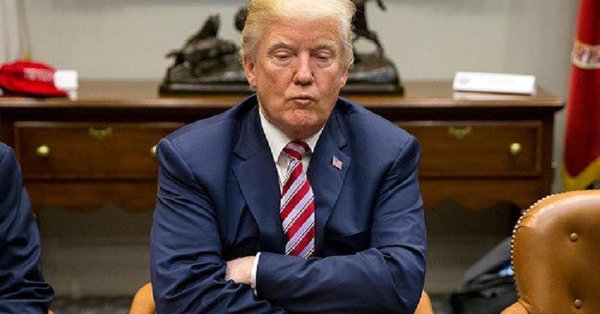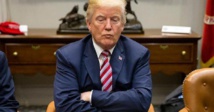Washington (dpa) - Former US secretary of defence Jim Mattis, when he was still a soldier in uniform, warned that cutting corners on the diplomatic budget was a false economy.
"If you don't fund the State Department fully, then I need to buy more ammunition ultimately," Mattis told Congress in 2013 as he was set to retire from the Marines.
"The more that we put into the State Department's diplomacy, hopefully the less we have to put into a military budget," Mattis said.
However, this week, the White House unveiled its budget proposal for fiscal year 2020 and is recommending cutting the State Department budget, including foreign aid, by about 23 per cent.
This would mean billions of dollars less towards humanitarian and development assistance for the world's poorest people and conflict zones, and fewer tools at the disposal of US diplomats.
"We should be investing in diplomacy and development, not hollowing out our international affairs budget," said Eliot Engel, the chairman of the House of Representatives Foreign Affairs Committee, in response to the proposal.
Engel, a Democrat, declared that the Republican president's budget was "dead on arrival." He predicted that the budget would be opposed by lawmakers from both parties. Indeed, lawmakers have united in the past two years to block deep austerity at the State Department.
"We must be careful that cuts don’t have unintended consequences that cost us more in the medium and long term. This is especially true of impactful cuts to humanitarian and developmental assistance," said Michael McCaul, the top Republican on the House committee.
Trump has, meanwhile, increased defence spending in his time in office. The latest proposal for 2020 would again see an increase of 5 per cent, bringing the total budget to 750 billion dollars.
This means more than 18 times as much money would be spent on defence as on diplomacy.
Ever since taking office, Trump has been on a warpath to cut the State Department and, in particular, foreign aid. The moves by Trump have often met with resistance in Congress and in 2018 the president backed down from his steepest proposals as lawmakers pushed back.
Notably, some of the cuts included hundreds of millions of dollars for the Middle East, including Syria, just as the US was working to stabilize areas freed from the grip of the Islamic State extremist group.
Since then, the US' Kurdish allies in Syria have been begging for more help, as thousands of civilians flee the last Islamic State stronghold with few resources on the ground to help them.
Mark Hertling, a former general in the US army and a critic of the administration, warned that the consensus among top military brass was that the State Department was "underfunded" even prior to the latest budget proposal.
The newest proposed cuts will only add to the unease felt at the State Department in recent years, as diplomats fear their importance has faded under the Trump administration.
Many key foreign policy initiatives are run directly from - or at least overseen by - the White House, as the North Korea track has shown.
Former secretary of state Rex Tillerson, the oil executive who took over as the nation's top diplomat as Trump entered office, was seen as having gutted the State Department during his months in office, leaving a demoralized department that was haemorrhaging top level employees.
Mike Pompeo, the new secretary of state, promised to bring "swagger" back to the department, but so far has fallen in line with the president's wishes on the cuts.
"If you don't fund the State Department fully, then I need to buy more ammunition ultimately," Mattis told Congress in 2013 as he was set to retire from the Marines.
"The more that we put into the State Department's diplomacy, hopefully the less we have to put into a military budget," Mattis said.
However, this week, the White House unveiled its budget proposal for fiscal year 2020 and is recommending cutting the State Department budget, including foreign aid, by about 23 per cent.
This would mean billions of dollars less towards humanitarian and development assistance for the world's poorest people and conflict zones, and fewer tools at the disposal of US diplomats.
"We should be investing in diplomacy and development, not hollowing out our international affairs budget," said Eliot Engel, the chairman of the House of Representatives Foreign Affairs Committee, in response to the proposal.
Engel, a Democrat, declared that the Republican president's budget was "dead on arrival." He predicted that the budget would be opposed by lawmakers from both parties. Indeed, lawmakers have united in the past two years to block deep austerity at the State Department.
"We must be careful that cuts don’t have unintended consequences that cost us more in the medium and long term. This is especially true of impactful cuts to humanitarian and developmental assistance," said Michael McCaul, the top Republican on the House committee.
Trump has, meanwhile, increased defence spending in his time in office. The latest proposal for 2020 would again see an increase of 5 per cent, bringing the total budget to 750 billion dollars.
This means more than 18 times as much money would be spent on defence as on diplomacy.
Ever since taking office, Trump has been on a warpath to cut the State Department and, in particular, foreign aid. The moves by Trump have often met with resistance in Congress and in 2018 the president backed down from his steepest proposals as lawmakers pushed back.
Notably, some of the cuts included hundreds of millions of dollars for the Middle East, including Syria, just as the US was working to stabilize areas freed from the grip of the Islamic State extremist group.
Since then, the US' Kurdish allies in Syria have been begging for more help, as thousands of civilians flee the last Islamic State stronghold with few resources on the ground to help them.
Mark Hertling, a former general in the US army and a critic of the administration, warned that the consensus among top military brass was that the State Department was "underfunded" even prior to the latest budget proposal.
The newest proposed cuts will only add to the unease felt at the State Department in recent years, as diplomats fear their importance has faded under the Trump administration.
Many key foreign policy initiatives are run directly from - or at least overseen by - the White House, as the North Korea track has shown.
Former secretary of state Rex Tillerson, the oil executive who took over as the nation's top diplomat as Trump entered office, was seen as having gutted the State Department during his months in office, leaving a demoralized department that was haemorrhaging top level employees.
Mike Pompeo, the new secretary of state, promised to bring "swagger" back to the department, but so far has fallen in line with the president's wishes on the cuts.









 Home
Home Politics
Politics











